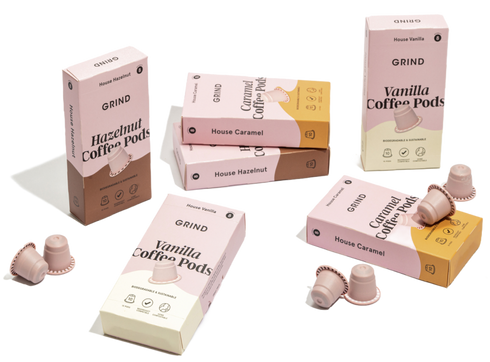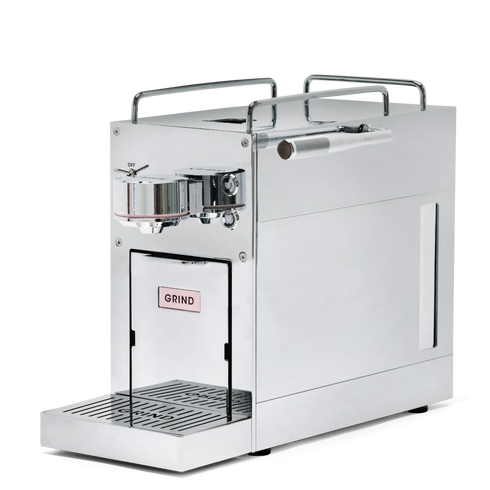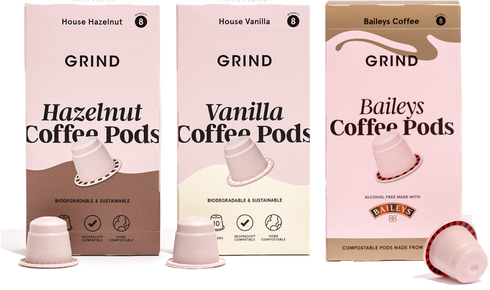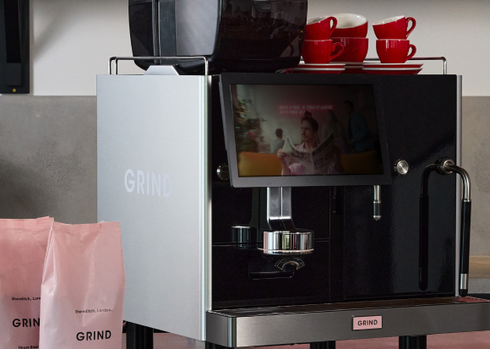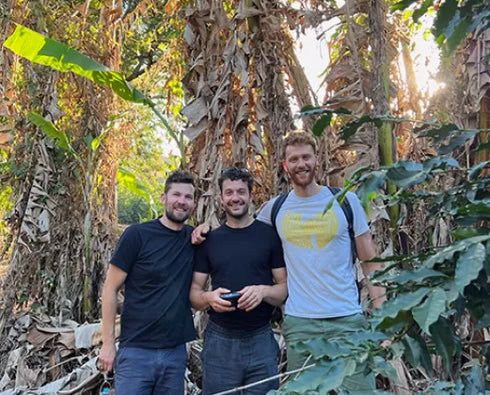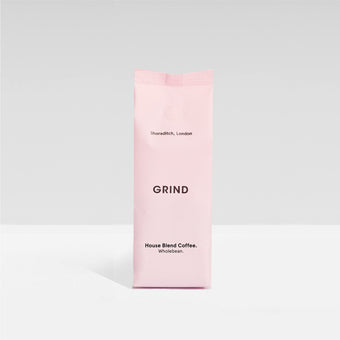Why Are Coffee Prices Rising?
Coffee prices are at an all-time high. Here's what that means for us and for you, and how we're continuing to offer the best planet-friendly coffee.
An Update on Our Pricing.
The coffee market is currently an incredibly volatile place, largely due to recent geopolitical and ecological events. The price of green (unroasted) coffee has reached a record high, having increased by 80% since November.
As a result, we have had to make the difficult decision to adjust the prices of our coffee pods and whole bean and ground coffee so that we can continue to offer our customers the highest-quality coffee both today and in the future. We know that this isn't the news you want to hear, and we have done our best to mitigate these changes, but we have had to adapt to account for the impact of global conditions.
We want to say a HUGE thank you for your ongoing support. We're on a mission to change the way we drink coffee for the better, and we simply couldn't do that without our loyal customers. To stay true to our ethical and sustainable values while crafting our speciality coffee blends, a small price increase is unfortunately a necessity.
Our new prices will apply from 23rd April 2025. Subscription customers will still save when compared to non-recurring orders and get free shipping with every delivery.
|
Subscription Plan
|
New Price (per delivery) |
Monthly Saving (compared to individual purchases) |
|
x30 Pods |
£13.95 |
Up to 15% |
|
x60 Pods |
£26.95 |
Up to 16% |
|
x100 Pods |
£42.50 |
Up to 17% |
|
2x 227g Bags |
£14.95 |
Up to 25% |
|
1kg Bag |
£25.50 |
Up to 27% |
You can manage your subscription here.
Why Are Coffee Prices Going Up?
Climate Conditions in Brazil and Vietnam.
Brazil, the world's largest coffee producer, is battling its worst drought in 70 years. Unstable weather and extremely low rainfall have had a disastrous impact on the coffee crop. The lack of moisture has caused the coffee trees to flower less, which will affect not only the current season but also the following season, so Arabica production is expected to drop drastically next year and it won't meet the global demand.
Vietnam, the world's second largest coffee producer, is also facing major challenges due to adverse climate conditions. The dry season was followed by intense rainfall, which has had a negative effect on the quality and quantity of the crop.
In addition to lower yields, the drought is also making the harvest process difficult. Many farms, particularly in major coffee-producing countries like Brazil, Vietnam, and Colombia, are struggling with higher irrigation costs and lower labour efficiency, which, combined with global shortages, is driving coffee prices to unprecedented highs.
Speculation and Logistical Delays.
The coffee market is particularly vulnerable to strong price fluctuations, which are amplified by speculation, harvest reports, and short-term trading decisions.
As prices rose in the wider commodity market, farmers could hold back their coffee to take advantage of the situation. This has led to a reduced supply and some larger roasters have been forced to buy from certified market stocks, further depleting the supply and pushing up the price.
The situation is also being exacerbated by logistical delays flowing from conflicts in Ukraine and the Middle East, and political turbulence, particularly in the US.
The Impact on Grind Coffee.
The speciality-grade coffee we buy is significantly more expensive than commodity coffee. We have worked incredibly hard to build and maintain collaborative relationships with our partner farms over the years, and we trade directly with them. To continue to prioritise fair compensation for labour, responsible farming practices, and exceptional quality in our trade relationships, we have to adapt.
We are a company founded on sustainability, craft, and community. We will always adhere to these values so that we can continue to reshape the coffee industry for good. To keep having a positive impact, these price changes are unavoidable.
Why Sustainable Coffee Is More Important Than Ever.
Climate change is affecting yields all over the world; coffee is particularly sensitive to weather conditions, and changing climates are affecting all coffee-growing regions.
Producers are facing extreme and unpredictable weather events like droughts, floods, and rising temperatures, which damage crops and decrease the supply of coffee, therefore driving up the cost.
Coffee beans can only be grown in a narrow tropical band either side of the equator, often referred to as ‘The Coffee Belt’. Coffee farming is labour intensive and there are only a few producing countries that can have two harvests a year, and when a farm plants new coffee trees, it will take around 3–4 years for these trees to bear fruit. In short, there is no simple solution when faced with volatile weather conditions.
In this environment, it is more important than ever for us to continue roasting speciality coffee that has been sustainably farmed and ethically sourced, and packing it in sustainable materials.
Again, we’re so grateful for your support. By shopping with us, you’re helping us make sustainable, craft coffee accessible to more people in more places, fighting climate change and contributing to a more sustainable economy.
Got questions? Email us at hello@grind.co.uk






